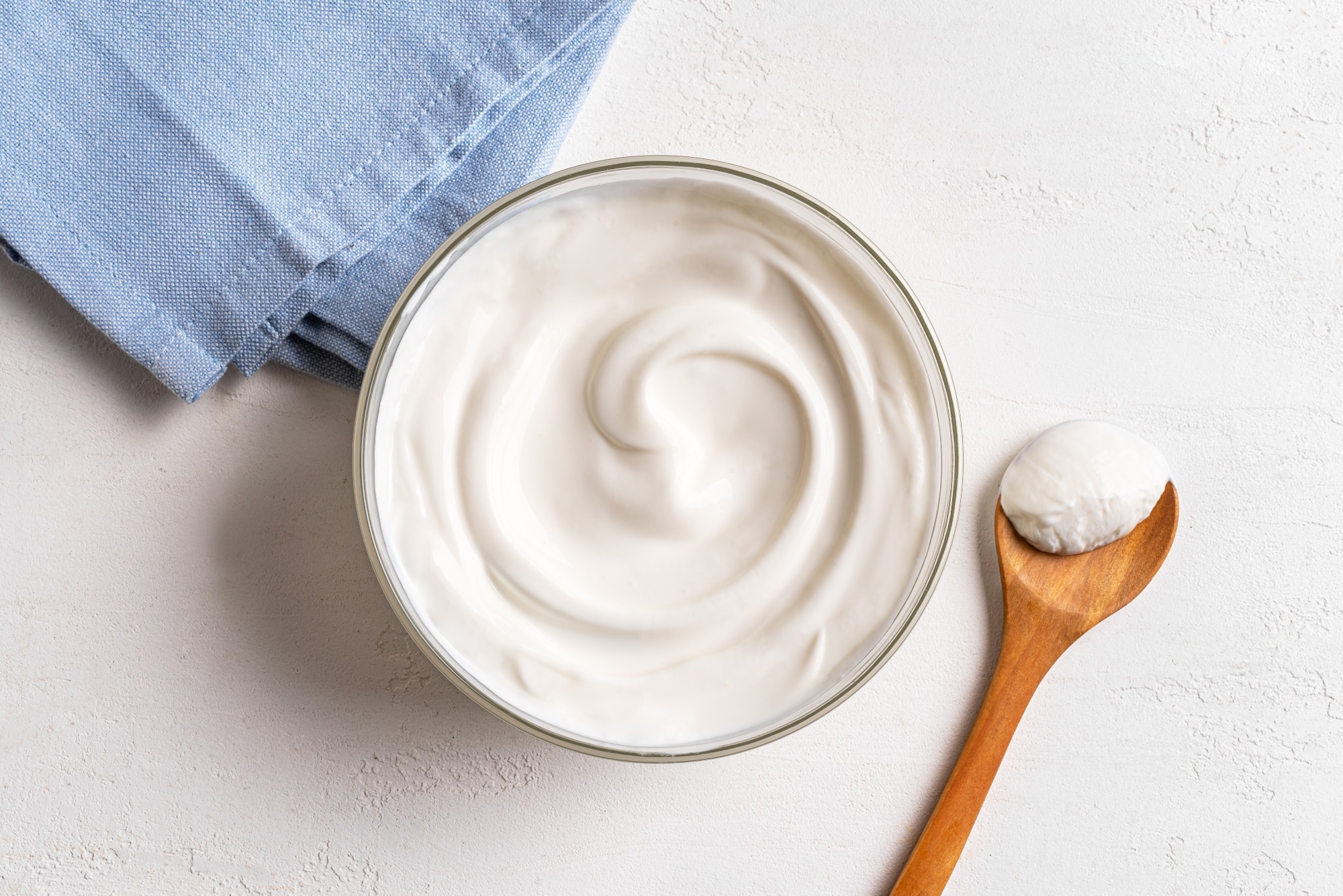Scientists found that long-term yogurt consumption may lower the risk of a specific type of colorectal cancer - but only when tumors contain Bifidobacterium. Could yogurt’s impact on gut bacteria be the key to prevention?
 Study: Long-term yogurt intake and colorectal cancer incidence subclassified by Bifidobacterium abundance in tumor. Image Credit: Oksana Mizina / Shutterstock
Study: Long-term yogurt intake and colorectal cancer incidence subclassified by Bifidobacterium abundance in tumor. Image Credit: Oksana Mizina / Shutterstock
In a recent study published in the journal Gut Microbes, a team of researchers investigated whether regular yogurt intake is linked to reduced colorectal cancer risk, with a focus on tumors containing the beneficial Bifidobacterium bacteria. The study found that while yogurt consumption was not linked to a lower overall risk of colorectal cancer, it was associated with a reduced risk of a specific subtype - tumors that contain Bifidobacterium, particularly in the proximal colon.
Probiotics and Colorectal Cancer
Colorectal cancer is a major global health concern, responsible for over 900,000 deaths each year. A growing body of research has also highlighted the connection between diet, gut bacteria, and cancer development. Yogurt, rich in probiotics such as Bifidobacterium, is known to promote gut health and has been linked to reduced risks of diabetes, cardiovascular disease, and digestive disorders.
Some studies suggest that yogurt may also lower colorectal cancer risk, possibly by improving the gut microbiome balance and strengthening the intestinal barrier. Importantly, the presence of Bifidobacterium in tumors does not necessarily indicate that it plays a protective role - rather, it may reflect underlying gut health and intestinal barrier integrity.
The Current Study
In the present study, the researchers conducted a large-scale analysis using data from two ongoing prospective cohort studies in the United States (U.S.) - the Health Professionals Follow-up Study and the Nurses’ Health Study - comprising over 130,000 participants.
These studies collected detailed information on the participants' diet, lifestyle, and health over several decades. They were asked about their yogurt consumption using validated food frequency questionnaires every four years. The researchers calculated each person’s long-term average yogurt intake and grouped participants into categories ranging from less than one serving per month to two or more servings per week.
Additionally, colorectal cancer cases were identified through questionnaires, medical records, and death certificates. Tissue samples from confirmed colorectal cancer cases were obtained from hospitals across the U.S.
Pathologists analyzed these samples to determine tumor characteristics and extracted deoxyribonucleic acid (DNA) to measure the presence of Bifidobacterium using quantitative polymerase chain reaction (qPCR). The tumors were then classified as Bifidobacterium-positive or Bifidobacterium-negative. The study also considered cancer location, distinguishing between proximal colon, distal colon, and rectal cancers.
The researchers used various statistical methods to explore whether yogurt intake was associated with colorectal cancer risk, specifically examining whether the association differed between Bifidobacterium-positive and Bifidobacterium-negative tumors. They also accounted for factors such as age, physical activity, smoking, alcohol intake, body weight, red and processed meat consumption, and vitamin intake. Additionally, the researchers applied inverse probability weighting to adjust for potential selection bias in tumor sample availability.
Major Findings
The researchers reported that long-term yogurt intake was not associated with a reduced risk of colorectal cancer overall. However, it was linked to a lower risk of Bifidobacterium-positive colorectal cancer, particularly in the proximal colon. Individuals who ate at least two servings of yogurt per week had a potentially lower risk of developing Bifidobacterium-positive colorectal cancer compared to those who ate less than one serving per month.
Furthermore, the protective association was most notable for cancers in the proximal colon. However, this effect did not reach statistical significance (p = 0.06), meaning that further research is needed to confirm this potential link. Notably, yogurt consumption did not reduce the risk of Bifidobacterium-negative colorectal cancer and was even associated with a slight, albeit not statistically significant, increase in risk for these tumors (hazard ratio: 1.09, 95% confidence interval: 0.81–1.46).
Among the participants who consumed two or more servings of yogurt weekly, the risk of developing Bifidobacterium-positive proximal colon cancer was nearly 50% lower (hazard ratio: 0.53, 95% confidence interval: 0.27–1.06) compared to those who rarely ate yogurt. This suggested that the potential benefits of yogurt might be linked to its role in supporting gut barrier function rather than simply increasing levels of Bifidobacterium in tumors.
However, the study had numerous limitations. The assessment of yogurt intake was based on self-reported data, introducing the possibility of errors in dietary assessment. Moreover, while the study focused on Bifidobacterium, other beneficial bacteria found in yogurt, such as Lactobacillus, were not measured. Since gut microbiota is highly complex, the role of multiple bacterial species in colorectal cancer risk remains unclear.
Despite these limitations, the findings indicated that long-term yogurt intake might selectively influence the risk of colorectal cancer characterized by bacterial imbalances and impaired gut barrier function. The team agrees, however, that further research is needed to confirm these results in broader populations and clarify how yogurt and gut bacteria interact to influence cancer development.
Conclusions
Overall, the findings implied that yogurt intake was not associated with a general reduction in colorectal cancer risk but may have a selective effect on specific tumor types - particularly Bifidobacterium-positive cancers in the proximal colon. This also added to growing data on the potential role of diet in influencing gut bacteria and cancer risk.
While the findings are promising, they do not establish a causal link between yogurt intake and cancer prevention. Future research is necessary to confirm these results across different populations and investigate the potential mechanisms by which yogurt and gut microbiota interact in relation to cancer development.
Journal reference:
- Ugai, S., Liu, L., Kosumi, K., Kawamura, H., Hamada, T., Mima, K., … Ugai, T. (2025). Long-term yogurt intake and colorectal cancer incidence subclassified by Bifidobacterium abundance in tumor. Gut Microbes, 17(1). DOI: 10.1080/19490976.2025.2452237, https://www.tandfonline.com/doi/full/10.1080/19490976.2025.2452237